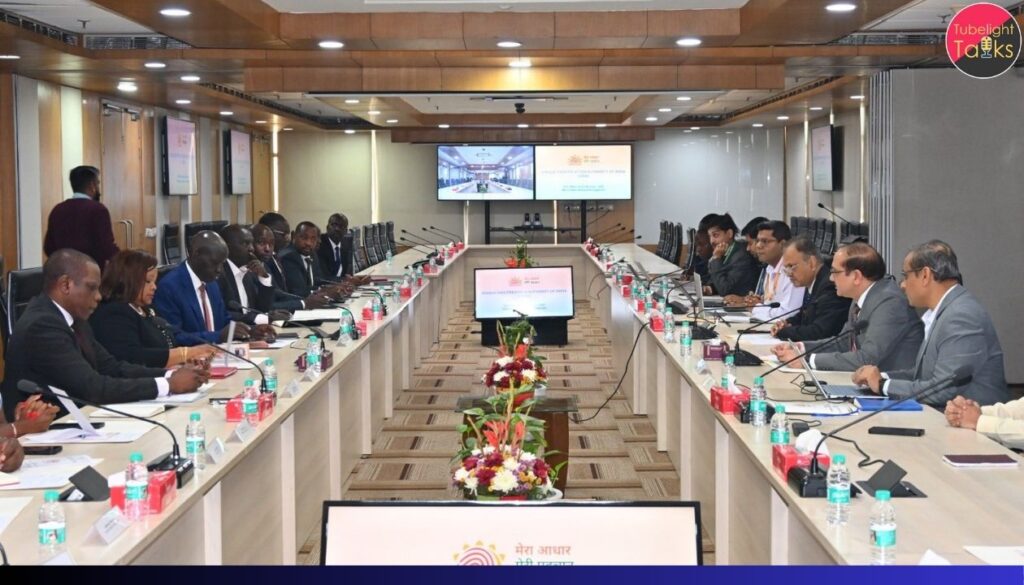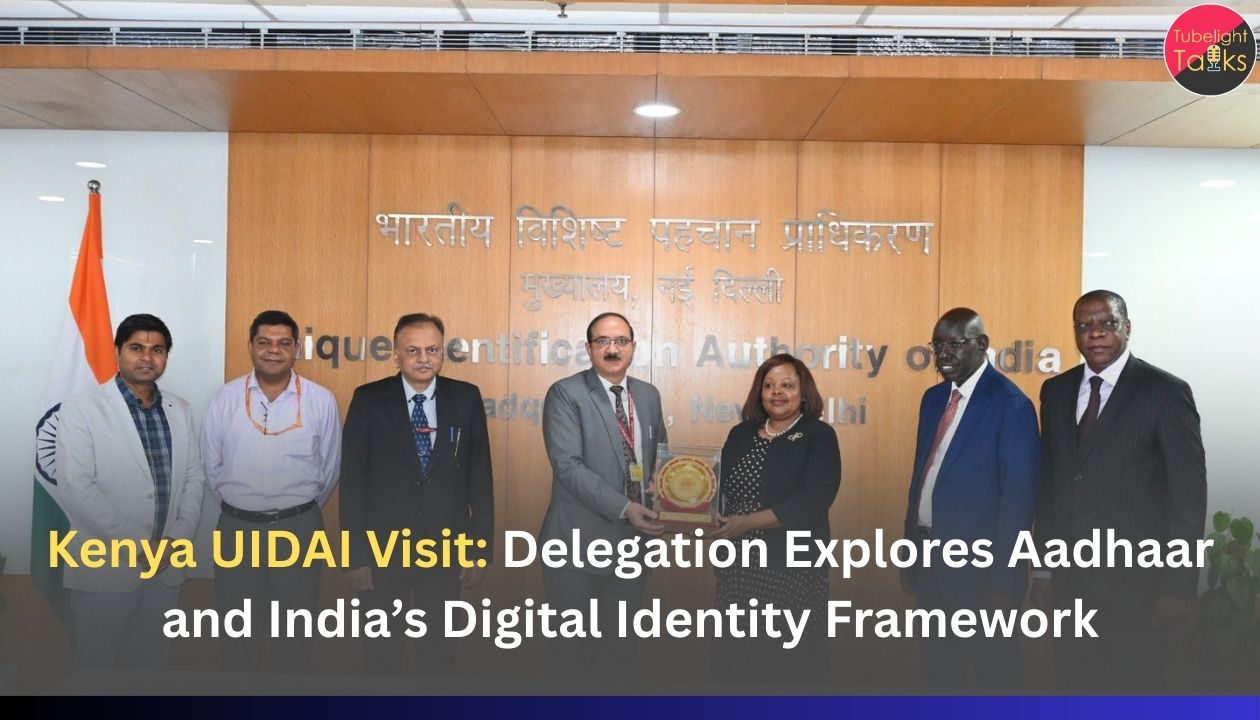Kenya UIDAI Visit: Delegation Explores Aadhaar and India’s Digital Identity Framework
Kenya UIDAI Visit took place as a high-level Kenyan delegation led by H.E. Ms. Mercy Wanjau, Secretary to the Cabinet, visited the headquarters of the Unique Identification Authority of India (UIDAI). The UIDAI CEO and the Deputy Director General (Africa Unit) offered detailed briefings on the Aadhaar ecosystem, including enrolment, authentication, service delivery, and last-mile digital identity integration.
The discussions also showcased India’s Digital Public Infrastructure journey and shared insights that could support Kenya’s own national digital identity initiatives.
India’s Aadhaar Ecosystem
India’s Aadhaar system is the world’s largest biometric digital identity program, providing over 1.4 billion residents with a unique identity number linked to demographic and biometric data. This secure and scalable infrastructure underpins a wide range of services, from financial inclusion and welfare benefits delivery to digital payments and identity authentication for private and public sector applications.
Details of the Visit
The Kenyan delegation focused on understanding the technical and operational aspects of Aadhaar, including:
- The enrolment process ensuring comprehensive citizen coverage.
- Authentication services enabling secure identity verification online and offline.
- Integration of Aadhaar-enabled services across government departments and private entities.
- Strategies for last-mile digital identity delivery to the remotest regions ensuring inclusiveness.
Knowledge Sharing and Collaboration
The meeting emphasized the importance of India’s journey in building robust digital public infrastructure and overcoming challenges related to scale, privacy, and service adoption. The delegation and UIDAI officials discussed how these learnings could be customized and adapted to Kenya’s socio-economic and technological context, supporting Kenya’s National Digital Identity initiative.
Experts’ Views

Digital identity experts view such international knowledge exchange as critical for accelerating digital transformation in developing countries. Kenya’s interest in Aadhaar signifies growing recognition of digital IDs as foundational for inclusive economic growth, governance, and social empowerment.
Digital Empowerment through Truth and Righteousness
Sant Rampal Ji Maharaj’s Satgyan advocates for technology-driven progress grounded in truth, transparency, and ethical governance. UIDAI’s mission to provide inclusive, secure digital identity reflects these ideals, enabling equitable access to government services and empowering marginalized populations – hallmarks of righteous societal development.
Key Facts
- Kenya delegation led by H.E. Ms. Mercy Wanjau visited UIDAI Headquarters.
- Briefings covered Aadhaar enrolment, authentication, service integration, and last-mile delivery.
- Discussions focused on India’s Digital Public Infrastructure journey and lessons learned.
- Kenya aims to leverage these insights for its National Digital Identity program.
Also Read: India’s DPI 2.0 Defines the Digital Transformation Landscape for the Global South
FAQs: Kenya’s delegation visit UIDAI
1. What is Aadhaar?
India’s biometric digital ID system covering over 1.4 billion residents.
2. Why did Kenya’s delegation visit UIDAI?
To understand India’s digital identity ecosystem and learn from its implementation experience.
3. What is last-mile delivery in digital identity?
Ensuring digital ID services reach even the remotest or underserved populations.
4. How can Kenya benefit from Aadhaar learnings?
By adapting scalable, secure, and inclusive digital identity solutions for governance and service delivery.
5. Who led the Kenyan delegation?
H.E. Ms. Mercy Wanjau, Secretary to the Cabinet, Government of Kenya.
Shared Knowledge Strengthen Governance
The visit by Kenya’s Cabinet Secretary Mercy Wanjau and her delegation to UIDAI marks an important milestone in advancing international cooperation on digital identity innovation. India’s Aadhaar ecosystem offers Kenya meaningful insights into building secure, scalable, and inclusive digital frameworks capable of accelerating socio-economic development and improving public service efficiency.
Strengthening this exchange of knowledge will not only enhance digital governance in both nations but also support the creation of interoperable systems, foster capacity-building, and promote citizen-centric service delivery. Such collaborations demonstrate how shared learning can shape resilient digital futures and empower communities in the rapidly evolving digital era.











Discussion (0)